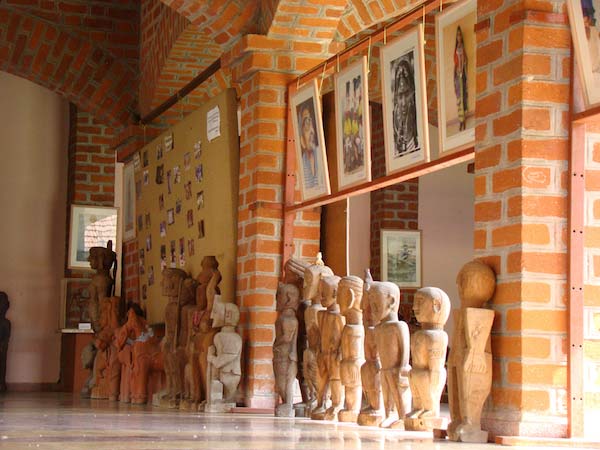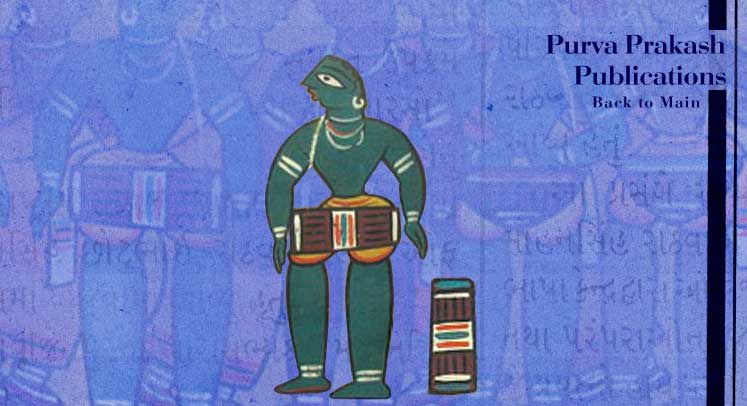
Bhasha is not an acronym. The term ‘bhasha’ means in most Indian languages, ‘language’, ‘speech’, ‘definition’ or ‘voice’.
Bhasha Research and Publication Centre was founded in 1996 for study, documentation and conservation of Non Scheduled languages not protected by the Constitution of India. In the initial years, Bhasha focused on languages of Adivasi and Nomadic communities, many of which follow an oral tradition.
Bhasha and its publication unit, Purva Prakash, have together documented the rich literature prevalent in these languages, their epics, narratives, theatre, music traditions and arts. Bhasha and Purva Prakash have published literary and children’s magazines, books, educational material in print and digital format in 32 Adivasi languages as well as in the major languages as Gujarati, Hindi, Marathi and English. These publications present the Adivasi imagination, knowledge systems, culture and society and have brought visibility to and understanding regarding a significant but long neglected stream of Indian literature and society.
Adivasi literature has emerged as a distinct theme and many new voices and writings are coming to the fore. Publishers are bringing out Adivasi literature in translation. Bhasha had initiated publishing in Adivasi languages nearly two decades back when Adivasi literature was unheard of. The effort to protect the oral languages which began with a single community magazine (Dhol) has now taken the form of a national initiative to map the living languages of India. The People’s Linguistic Survey of India carried out by Bhasha under the Chairmanship of Linguapax Awardee and Founder of Bhasha, Prof. G. N. Devy, maps 780 languages of the Adivasi, nomadic, coastal and hill people along with other marginalized groups.
To make the many community voices visible and heard, we feel happy to bring our publications to you in digital format. This website will keep bringing Bhasha/Purva Prakash’s publications in digital format for easy accessibility and reach.
Source: Bhasha E Books
Date Visited: 25 Oct October 2017

Learn more >>
Read or download titles for free (eBooks & Magazine) >>
Learn more
Adivasi Academy & Museum of Adivasi Voice at Tejgadh
Adverse inclusion | Casteism | Rural poverty
Anthropology | eBooks, eJournals & reports | eLearning
Central Institute of Indian Languages (CIIL) Mysore
Colonial policies | Denotified Tribe vs. “criminal tribe“ | Imprisonment & rehabilitation
eBook | Adivasi Stories from Gujarat – Bhasha Research and Publication Centre (Vadodara)
eBook | Background guide for education
Endangered language | PeoplesLinguisticSurvey.org
Ganesh [G.N.] Devy | Publications | Lecture “A View of Higher Education in India”
History | Colonial policies | Freedom Struggle | Independence
Human Rights Commission (posts) | www.nhrc.nic.in (Government of India)
India’s Constitutional obligation to respect their cultural traditions
Languages and linguistic heritage
Literature and bibliographies | Literature – fiction | Poetry
Multilingual education is a pillar of intergenerational learning – Unesco
Museum & Society – A re-evaluation of Adivasi Heritage by Prof. Ganesh Devy
People’s Linguistic Survey of India | Volumes (PLSI) | PeoplesLinguisticSurvey.org
Scheduled Tribes | Classifications in different states
Video clips taken at Tejgadh and related information
Video | “Nations don’t make us human – languages make us human”: Ganesh Devy
Video | Tribes in Transition-III: “Indigenous Cultures in the Digital Era”
Tips for using interactive maps
Toggle to normal view (from reader view) should the interactive map not be displayed by your tablet, smartphone or pc browser
For details and hyperlinks click on the rectangular button (left on the map’s header)
Scroll and click on one of the markers for information of special interest
Explore India’s tribal cultural heritage with the help of another interactive map >>